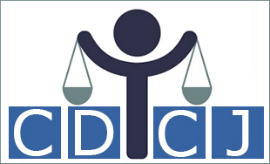The public notaries in Montenegro have a new Code of Notary Ethics as adopted on 28 December 2020 by the Chamber of Notaries of Montenegro, which will help them to carry out their duties more efficiently, aiming to limit disputes and enhance the preventive administration of justice.
The new Code developed with the support of the EU and Council of Europe joint programme Horizontal Facility II programme, incorporates a set of new principles and ready-made practical solutions, drawn up from the acts of International Union of Notaries and best practices of Council of Europe Member States. It offers a model for preferred conduct to support ethical behaviour and address breaches of ethical values among notaries. Namely, ethical behaviour is of key importance in establishing a positive notary reputation among citizens, business entities and other stakeholders. The Code constitutes a key necessity since notaries require a code of ethics that clearly defines a set of values and principles as well as key guidance on how to embed them into daily work.
The Code of Notary Ethics was first drawn up in 2011, responding to the needs and challenges pertinent to the notary profession at that time. However, its limited practical implementation during the past years indicates that there is a need to update the Code and ensure more detailed guidance and good practice examples as well as to align it with the amendments to the notarial legislation introduced in 2016.
With its new approach and structure, the current Code responds to the actual needs of the notary community, which were shared and discussed during the consultative process of the Code's drafting and adoption. The 2020 Code is marked by two important changes:(1) although it was written primarily for the benefit of Notaries, its scope is extended to deputy notaries, notary associates and interns and other persons employed by notaries; and (2) the structure of the new Code is improved; it contains a list of the fundamental values and definitions in the field of Notary as well as a specific session dedicated to requirements for conducting the notary profession.
The new Code of Notary Ethics was prepared under the action “Accountability and professionalism of the judicial system in Montenegro” (Montenegrin website) which is part of the European Union and Council of Europe joint programme “Horizontal Facility for the Western Balkans and Turkey 2019-2022”.



